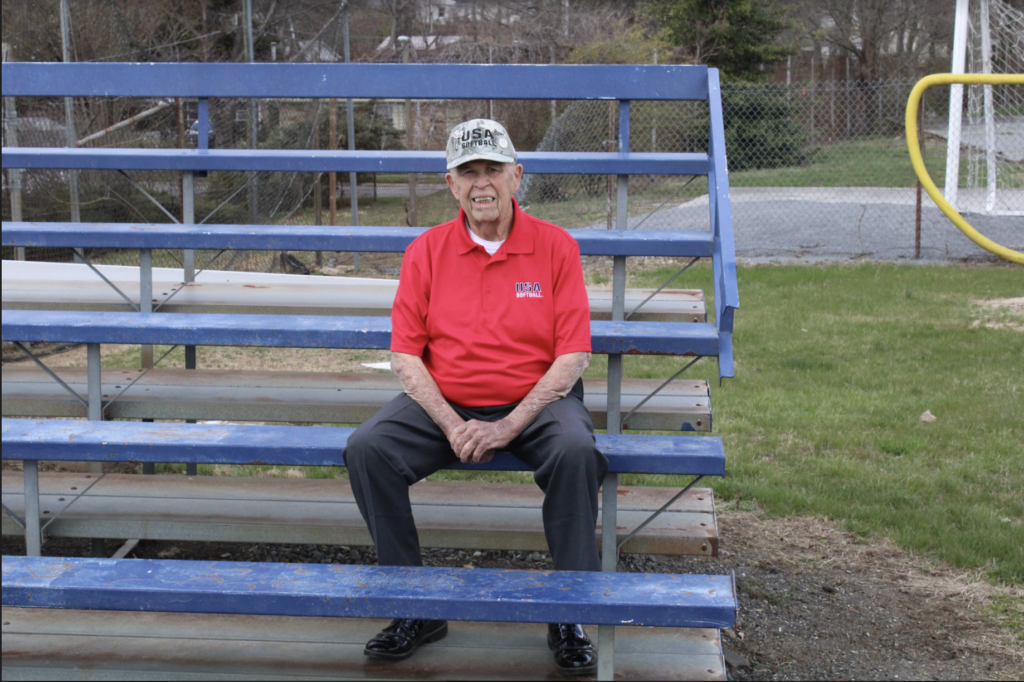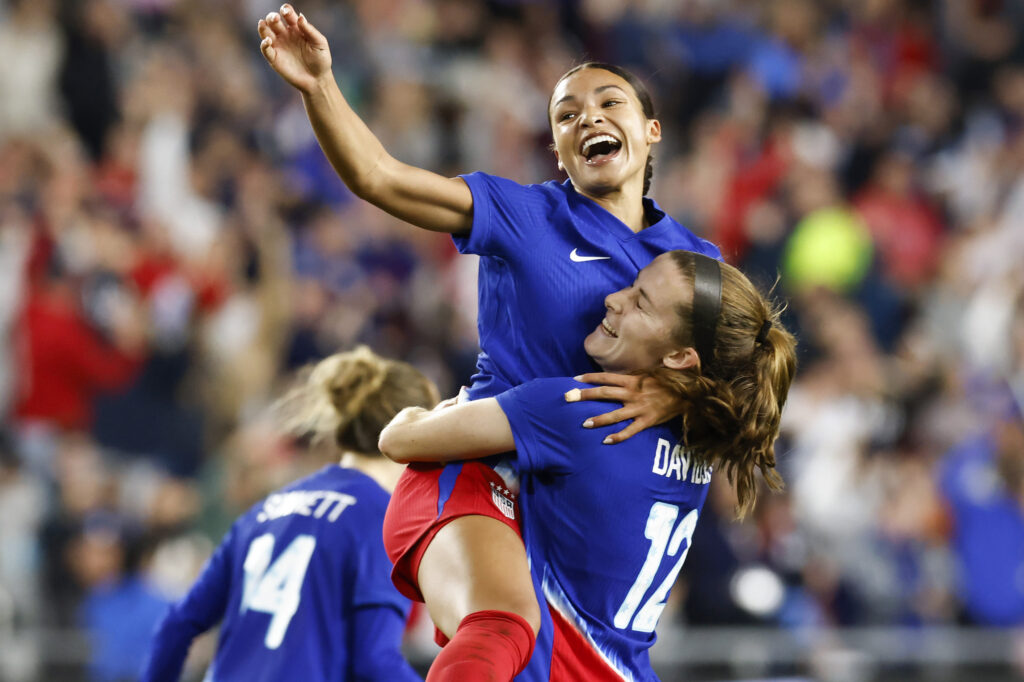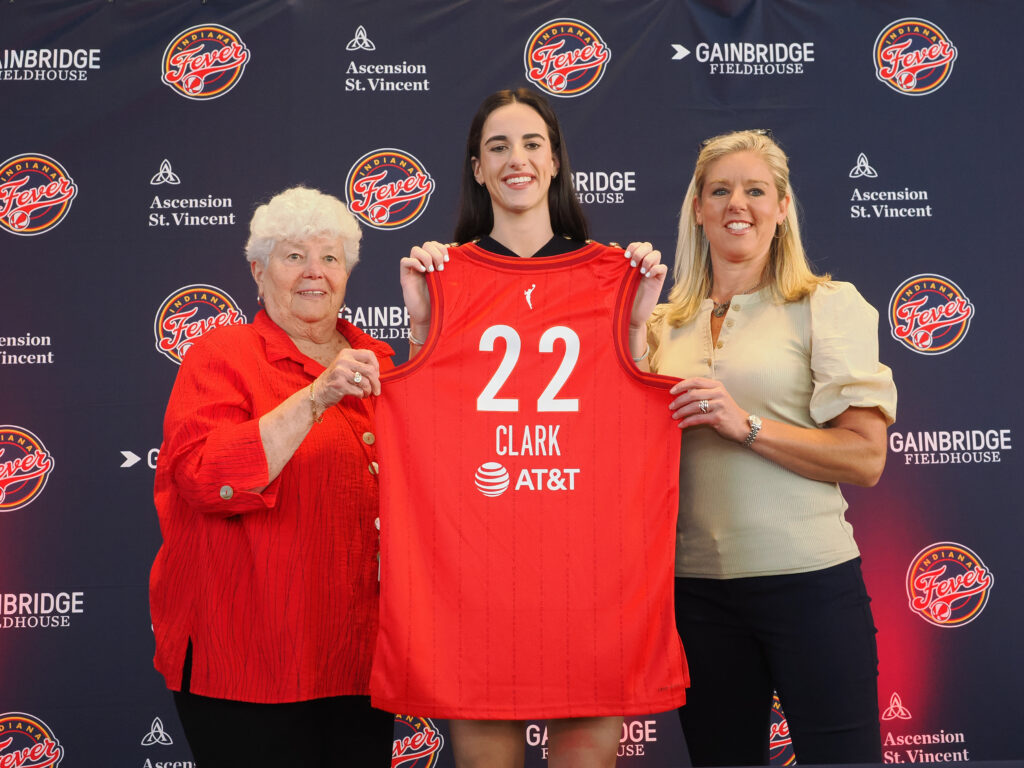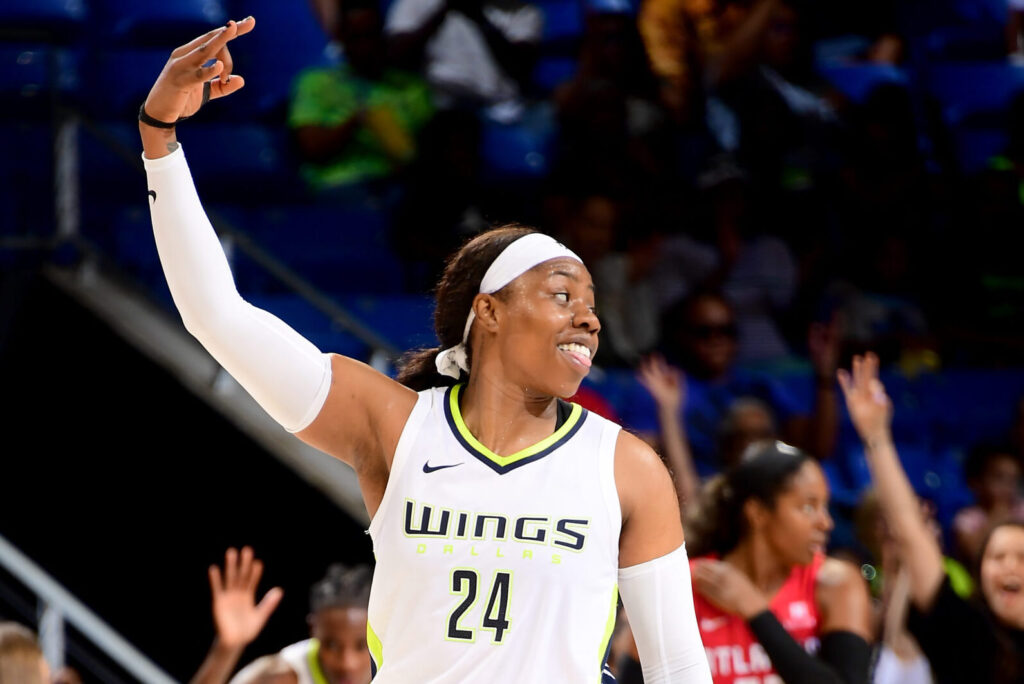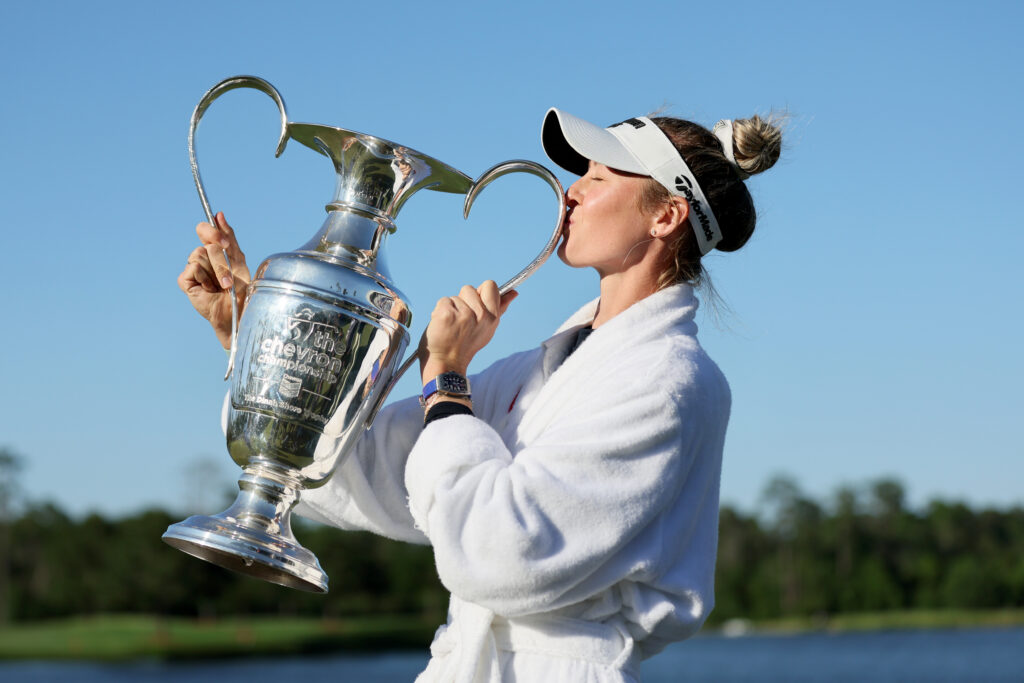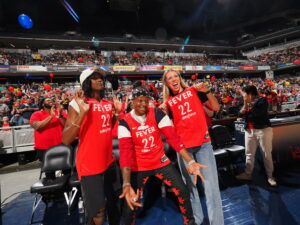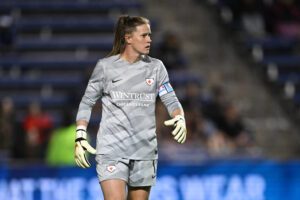
By Amanda Hernández and Emily Williams
Jack Mowatt, who spent decades umpiring softball in Prince George’s County, Maryland, knew the girls’ softball fields in the county were neglected — uneven, rutted, unsafe — while the boys’ baseball fields were well kept. When it rained, some softball fields did not drain. The fencing was jagged. Some benches were unusable and dangerous.
“Several years ago during a game, I thought: ‘These young women deserve more than this,’” Mowatt said when he testified in 2007 before a congressional committee.
Mowatt’s complaints 15 years ago led to a settlement under Title IX, the 1972 federal civil rights law that prohibits sex-based discrimination in public schools. Under that 2006 agreement, Prince George’s County Public Schools promised to adhere to Title IX requirements with a focus on boosting participation and improving conditions for high school girls softball programs as well as other sports countywide.
In the settlement agreed to by Prince George’s County and the National Women’s Law Center, the county promised to provide boys’ and girls’ teams with facilities such as locker rooms and practice and playing areas of equal quality and size.
“We’re going to be a prototype for other jurisdictions in the U.S. to meet Title IX compliance,” Beatrice P. Tignor, then chair of the school board, told The Washington Post in 2006.
The county made improvements. But 15 years later, problems remain.
At Parkdale High School in Riverdale, the softball team still doesn’t have a field at the school — though the county now provides transportation to a middle school nearby.
And at Bowie High School, while the baseball field is well tended, the dugouts at the softball field are collapsing, cordoned off with yellow caution tape.
“There’s still things in this county that could be done,” Mowatt said in a recent interview. “I worry about it.”
“The question is, really, are they continuing to pay attention to the girls’ fields as they do the boys’ fields?” asked Neena Chaudhry of the National Women’s Law Center, who was lead attorney in the 2006 settlement.
Even in a school system that promised to provide parity for girls’ and boys’ teams, attaining that goal remains a challenge.
A push for equal facilities
The Title IX challenge to Prince George’s County schools began with umpires comparing notes.
Mowatt, now retired, said that back in 2004, he and a fellow umpire, Chris Sole, talked about how the boys’ fields in the county were much better maintained than the ones the girls’ teams used.
A former softball coach at Parkdale, Gene Robinson, had also attempted to persuade the county to take action and address failing fields, Mowatt said.
He compiled a book including photos and brought it to the county athletics director. When the county athletics director didn’t respond, Mowatt tried to enlist coaches and school athletics directors. But they didn’t join him, Mowatt said, for fear of losing their jobs.
He went to the county board of education, to no avail.
“We kept pushing and kept pushing and kept pushing,” he said, but got no support.
Mowatt said he was on this campaign for parity but didn’t know that Title IX existed — more than 30 years after the law went into effect.
“Title IX was like something in the closet that nobody knew about,” Mowatt said. And high school girls turned to it far less than college students might, he said.
The U.S. Department of Education’s Office for Civil Rights typically accepts complaints related to Title IX. But Mowatt’s complaint took a different route. He consulted the National Women’s Law Center, which took the case, identifying it as a violation of the law.
Chaudhry recalled Mowatt arriving at the law center’s offices with binders of photos comparing the county’s baseball and softball fields.
“Jack brought us everything with the binders, I mean literally. It was so amazing,” Chaudhry said.
The law center staff traveled to the fields and identified more Title IX issues. This led to the 2006 agreement between the law center and Prince George’s County Public Schools.
Under the agreement, which included a three-year follow-up period, the school system promised to adhere to Title IX requirements and to fix specific problems — problems observed by both the law center and school officials.
As a part of the agreement’s three-year evaluation period, the school system filed annual reports to the law center, detailing its progress toward completing Title IX goals. These reports, however, were conducted by the school system itself. No independent entity assessed the county’s efforts.
The focus of the agreement was the softball programs. The softball teams had less equipment than the baseball teams, and the equipment they did have was old and worn.
Boys baseball had scoreboards, storage sheds, bleachers, pitchers’ warm-up areas and batting cages –– things most of the softball fields in the county lacked, according to the law center.
At Potomac High, in Oxon Hill, the softball field was so dangerous that the team played at a local recreation center instead, the law center said in its letter to Prince George’s County schools demanding change.
But the issues went beyond softball. Girls’ teams generally received inferior treatment when it came to equipment, uniforms and scheduling, the law center said in its demand letter. At many schools in the county, girls’ fields are used for multiple purposes, such as football practice, which means an increased rate of wear.
At Forestville High, which has since closed, the girls’ locker room was in such poor shape that girls changed in a classroom or the bathroom instead, the demand letter read. The softball field also flooded so badly, the letter added, that the team had to practice on the school’s parking lot. The baseball team practiced on its own field.
Girls made up roughly 50% of the Prince George’s County student population, yet their participation rates in athletics were as low as 35%, the law center found in 2004. On its face, that fails the proportionality test of Title IX, which requires the percentage of girls playing sports to be roughly equal to the percentage of female student enrollment.
Over the evaluation period, female participation in sports increased less than 1%, according to a Howard Center of Investigative Journalism analysis of county participation data. The analysis shows the participation data remained relatively stagnant throughout the three-year evaluation period, the 2006-2009 school years.
According to the 2009-2010 county progress report, the participation rates during the evaluation period were similar to regional and national participation numbers.
Despite repeated requests for data over four months, Prince George’s County school officials did not provide numbers on what percentage of girls have been participating in athletics in recent years.
The biggest thing they were hoping was that the three of us would go away.
Chaudhry said she was happy with the 2006 agreement and felt a personal connection because she grew up in Prince George’s County.
“We did a press conference with [the then superintendent] and we were trying to really show what can happen if a school says, ‘OK, we’re going to fix it. We’re going to step up and do the right thing,’” Chaudhry said.
But today, Mowatt said he was unaware of any enforcement during that three-year period.
“Like anything else: Nobody pushes it, it just goes away,” Mowatt said. “The biggest thing they were hoping was that the three of us would go away.”
While the county agreed to the terms outlined in the agreement and covered by the law, Mowatt said, the problems with some of the softball fields countywide haven’t changed. The language detailing three years of enforcement “fell on deaf ears,” he said.
Collapsing dugouts at Bowie
Today, Bowie softball players say they can see the inequities on their fields.
Katelyn McDermott, the varsity softball captain at Bowie High, said the softball bleachers are splintered and the dugouts are collapsing into a sinkhole.
Cassidy Francis, McDermott’s co-captain, said the players set up buckets for the opposing team to sit on because the dugout is too dangerous to be used.
“When I walk by the boys’ field, they have concrete dugouts and nice bleachers,” McDermott said. “It doesn’t really feel even in that sense.”
Bright yellow caution tape surrounds a hole where the softball dugouts at Bowie High School are falling inward.
The law center’s original demand letter, which described safety issues found at softball fields countywide, also noted a drainage issue at Bowie. It’s not clear if the problems of 2006 are related to the water damage today.
Bowie High officials have not responded to questions about the Bowie softball field’s condition, despite phone calls, emails and a letter.
Despite the problem with the dugouts, Luanne Smith, Bowie’s softball coach, said she feels the girls’ softball and boys’ baseball fields at the school are mostly equal — though she acknowledged that the baseball dugouts are nicer than the softball dugouts.
“I know that our athletic director is going to put just as much time and effort into the girls’ softball field as into the boys’ baseball field,” she said. “That’s the hope. That’s the goal.”
Gabriela Popol, a Bowie graduate who played softball, recalled having to leave class early to check on the softball field and ensure it was in shape for a game. When it wasn’t, she and other players would rake the field, she said, adding that Smith would often use a tractor for proper field preparation and maintenance.
“It was difficult because we would always have to take the time out of our practice or before our game to warm up … to do all of this stuff,” Popol said. “Whereas [the baseball team] wouldn’t really have to do anything.”
As a sophomore, Popol noticed a small hole in the dugout area. As the seasons passed, the hole only got bigger, sinking inward.
“Luanne would constantly ask … ‘Can we get this fixed?’ and she’d be on the phone about it, complaining about it,” Popol recalled. “I don’t think anything was ever done.”
Instead, Popol said, Smith tried fixing the dugout herself. McDermott also said Smith tries to pack dirt into the dugout so it doesn’t fall into the ditch.
It would have never happened to the boys.
Today, former coach Sarah Bible believes that the drainage issues identified in 2004 were never fully resolved, contributing to the problems with the dugout.
“We had to pretty much till the field every time we had to play a game if we had rain,” Bible said. “And we would go through so many bags of quick dry, or so many bags of what they call Turface, even just to get a game in.”
The disparities between how boys’ and girls’ teams were treated went beyond the condition of the playing fields.
Bible remembers how panicked she was on the day of their state championship final in 2003, when no bus arrived to take Bowie High’s softball team to their game.
“It would have never happened to the boys,” Bible said.
The bus had been sent on its regular after-school run before it was supposed to pick up the team. Finally, the players piled into cars and drove themselves to the field. They arrived late, almost missing a chance to warm up.
Bowie High lost to Glen Burnie’s North County High.
Today, McDermott said, the collapsing dugout is an issue that she believes would have been resolved quicker if it had happened to the boys’ baseball field.
The baseball players “don’t have any ditches to worry about right now,” McDermott said.
The Bowie Bulldogs have made the state quarterfinals every year for the past four years, except for the 2020 pandemic year.
“We’ve shown that we have the right to be playing here and we have a right to a good field,” McDermott said.
Progress and the future of Title IX education
In its 2006 agreement with the National Women’s Law Center, Prince George’s County Public Schools agreed to provide “an athletics program that would treat all PGCPS students fairly.”
While that statement remains subjective, the county made progress at several schools. The school system back then did not even have a Title IX coordinator, though that was required by federal law. Now, the district has designated Title IX responsibilities to the Equity Assurance Office.
It’s unclear, however, whether all stated improvements have held up countywide.
At Parkdale High School in Riverdale, the girls still do not have a field. Brian Moore, the athletics director there, said no space was allotted for a softball field when the school was built in 1968, before Title IX.
Instead, girls have traveled to Charles Carroll Middle School,a six-minute drive, to play on a field that Moore said is well maintained.
“[Parkdale] does not provide transportation to or from the field; rather, the girls must find their own way there and back,” the 2004 demand letter read. “It is our understanding that this is not an isolated situation — girls on several other softball teams must travel to their ‘home’ fields, while their male counterparts on the baseball team do not.”
Today, Moore said, the athletes have transportation.
The boys’ baseball field is on campus and carefully fenced off, along with other fields, to protect them. Groups that want to use them need a permit.
One school that made immense progress since the agreement was Central High School in Capitol Heights, said Luanne Smith, who previously coached softball at Central. As a result of the agreement, the school received a new field that addressed safety concerns.
The old Central field was located next to a gravel road “that used to be about a foot from first base in foul territory,” Smith said.
“The field ended up being … one of the nicest fields in the county rather than one where you go ‘Yeah, coach isn’t going to play there because it’s not safe,’” Smith said.
Still not well known
Despite the progress at Central and other schools in the area, Title IX is a broadly applied law that most student athletes do not know much about, advocates say.
“I’ve never actually had anyone explain to me what Title IX is,” said McDermott, the Bowie softball co-captain.
Her co-captain, Francis, agreed, adding that no one had ever mentioned Title IX to her before. She knew that Title IX discussed gender equity in sports, but her knowledge of the federal law didn’t go beyond that.
The county’s athletics handbook for students and parents includes no mention of Title IX. The handbook is only available online, Shirley Diggs, the coordinating supervisor of the school system’s Office of Interscholastic Athletics, said in a statement sent by a school system lawyer.
The lawyer, Lori Branch Cooper, is the equal opportunity employment administrator for the school system. When asked how parents and students learn about Title IX in sports, Cooper said in an email that Diggs “is currently in the process of updating the handbook to include information on Title IX.”
The emailed statement from Diggs’s office said she was new to the position and “continues to familiarize herself with past and current practices, and is therefore unable to provide a response to the remaining questions at this time.”
The original complaint letter from the law center noted “insufficient” Title IX training provided to teachers and administrators.
In the emailed statement, Diggs said only athletics directors in the county “take the Title IX video and assessment for safe schools in our county.” Coaches are not required to, Diggs said in the email from Branch Cooper.
“We make sure there is equity within our athletic program with the number of boys/girls sports, equipment, and uniform distribution, use of facilities, and funds evenly distributed into accounts per sport,” Diggs said in the statement.
We won the battle, but we’ve lost the war.
Chloe Feyes, a former Bowie softball player, said that many in society still believe it’s normal for boys in sports to receive better treatment than girls. But it’s time to change that, Feyes said.
Schools, she said, must take on the responsibility of improving the way Title IX is handled to ensure equity between boys and girls sports. If the boys’ team is getting something, she said, then it should be offered to girls’ teams too.
Mowatt still worries about the future of softball in the county, as 15 years later he continues to visit the fields, snapping pictures of conditions that he finds unsatisfactory.
The National Women’s Law Center “fought for us and went to war,” Mowatt said. “We won the battle, but we’ve lost the war.”
The Shirley Povich Center for Sports Journalism and the Howard Center for Investigative Journalism collaborated on a four-month investigation into Title IX and high school sports. Support their work at the University of Maryland’s Philip Merrill College of Journalism.
